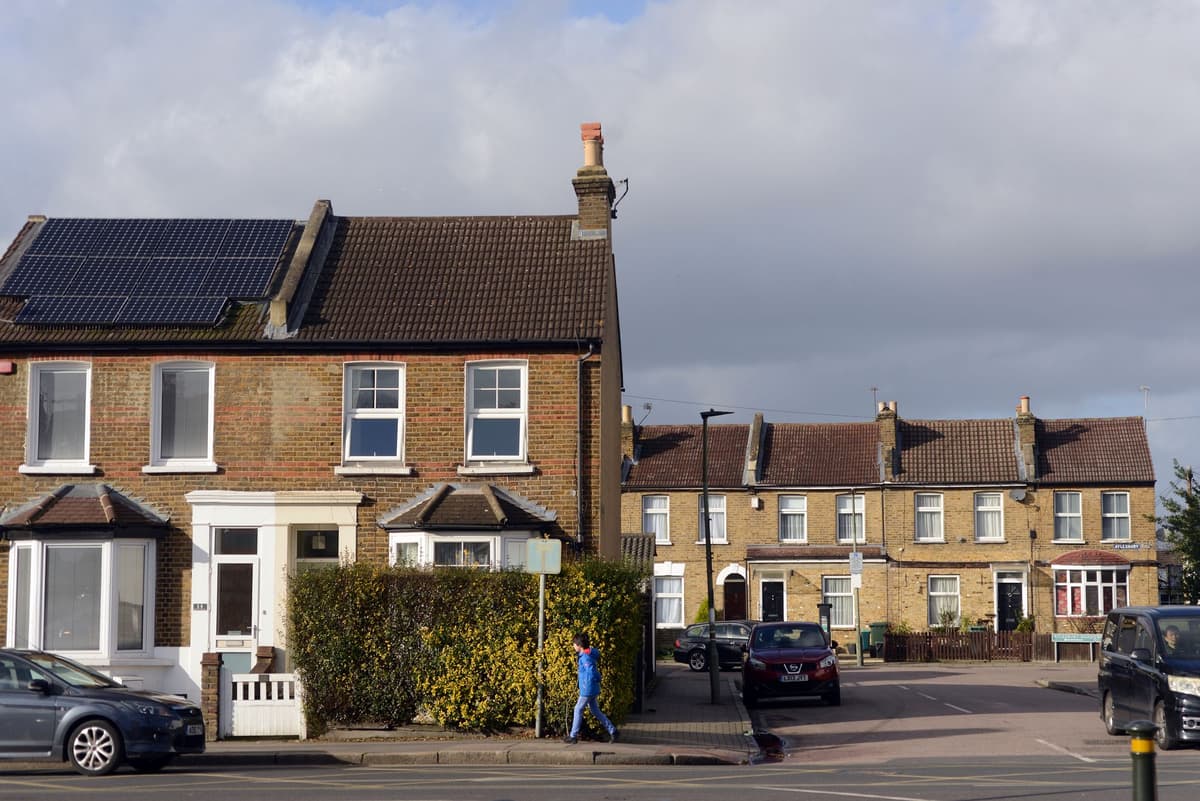
Buyers in London who want the luxury of their own front door must pay a premium of at least £190,000 for the privilege.
New research published today reveals the yawning – and widening — gap between the cost of buying an average apartment, compared to buying a terraced, semi-detached, or detached house.
Estate agent Hamptons found that across the capital buyers are stumping up an average premium of £186,930 to buy a terraced house rather than a flat, £263,450 extra for a semi-detached home, and a massive £707,520 for a detached house.
By borough the differentials can be even more extreme. In Ealing, for example, an average flat currently sells for £410,450. To upgrade to a terraced house, at an average £683,530, will mean finding almost £275,000 extra.
Fancy a semi-detached? That will be an extra £436,700. And for a detached home you are looking at an additional £945,000.
Meanwhile in Lambeth an average flat sells for around £467,000. Terraced houses cost £805,000 – an uplift of a cool £338,000.
And the price differential between flats and houses is increasing, because the sale price of houses have been growing faster than flats since the pandemic. A London flat currently costs £447,1760 — 20 per cent less, on average, than the £561,310 that it will take to buy an average-price house. In 2015 the “flat discount” was 14 per cent.
Why are flat prices rising more slowly than houses?
The key issue impacting flat sales is, of course, affordability. First time buyers, who traditionally dominated this sector, are increasingly priced out of buying any London property, flat or house.
Houses are more often bought by upsizers, who will have the benefit of having built up some property equity behind them.
Michael Zucker, a chartered surveyor at Jeremy Leaf & Co estate agents in north London, believes that the UK’s high buying costs are also encouraging first-time buyers to wait and save until they can get on the ladder in house, to avoid paying Stamp Duty on more than one purchase.
“Many first-time buyers prefer to buy a house they can stay in for many years rather than a flat which may not fulfil their requirements after a relatively short time,” said Zucker.

The number of first-time buyers buying flats has dropped
Daniel Lynch
Recent research by reallymoving found that the number of first-time buyers purchasing flats has dropped from 30 per cent in January to 27 per cent by August, a fall it attributes to negative publicity around the cladding crisis, ground rent, and service charges as well as high buying costs.
“We are seeing growing numbers of first-time buyers stretching to buy houses, often with significant family help,” said Justin Holder, head of sales of Hamptons in Chiswick. “The motivation is to buy once and stay put longer, rather than stepping up the ladder in stages.”
Jake Strubel, of Winkworth estate agents in Harringay, thinks the trend is also being fuelled by the lasting impact of the pandemic.
“Working from home has changed things,” he said. “People want space and some sort of garden if they can get it. Most are managing it through family help, bigger deposits, or by moving slightly further out to get more for their money.”
All this means that despite the huge extra cost of buying a house they are currently, proving an easier sell than flats. Houses in London currently take an average 60 days on the market to find a seller. Flats take an average of 80 days.
